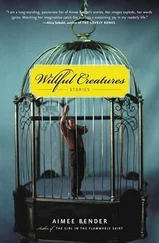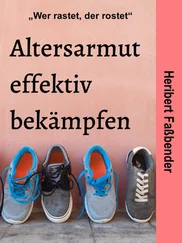Until a few months before, Ginger had been living in a worn pink studio apartment on Van Nuys Boulevard, storing her cash in margarine containers in her refrigerator. She was eighty-two years old, and for the last sixty years, she had sometimes lived in better accommodations, sometimes worse; this was what she had ultimately earned. On good days she sat with a cup of coffee and the Los Angeles phone book, calling up strangers for contributions to the Fireman’s Ball, the Christian Children’s Fund, the United Veteran’s Relief. Her British accent was the best one; with it, she could keep confused strangers in Canoga Park, Woodland Hills, Calabasas on the phone. “Congratulations for being the sort of person who will help our cause,” she told them, and she heard their pleasure in their own generosity. She cashed the checks at different fast-cash stores around the San Fernando Valley, presenting them with one of the false IDs from her bountiful collection.
One day, she took the wrong bus home. She looked out the window and was staring at a beach that she had never seen before. The water was bright and wrinkled as a piece of blue foil. Surfers scrambled over the dark, glassy waves. Ginger felt her heart grow cold. She had succeeded for over sixty-five years as a swindler because she always knew which bus to take.
She had actually intended to pay the doctor if the news had been good. He asked her a few questions. He held up a pair of pliers, and she had no idea what they were. She returned to the office twice and saw more doctors who wore pert, grim expressions. The diagnosis was a surprise. When he told her, it was one of the few times in her life she reacted as other people did: she covered her face and wept.
“You need to plan,” her doctor said. “You have relatives who can take care of you?”
“No,” she said.
“Children?”
“No.”
“Friends?”
His pained expression aggravated her. “I have many friends,” she said, because she pitied him.
She listened to him describe the end of her life and what she should expect her friends to do for her. Then Ginger had to stop him. She told the secretary that her checkbook was in the car and left the office without paying the bill.
SHE TRIED TO COME UP WITH A GRAND SCHEME THAT WOULD PAY for her future care, but her thoughts were not so ordered, and each day, she lost something: the word for lemons, the name of her street. Peering out her window at the lamplights that pierced the blue darkness in her apartment complex, she imagined befriending one of her neighbors, but her neighbors were flighty college dropouts, working odd hours, absent, uninterested in her. Ginger did not want to die in a hospital or an institution. Dying in this apartment would mean that she would not be discovered for days; the idea of her body lifeless, and worse, helpless, was intolerable.
She was watching television one evening when she saw an ad for a Carnival cruise. Many years ago she had sat with a man in an airport bar. He had been left by his wife of thirty-six years and was joking about killing himself on a cruise ship. “Someone finds you,” he said, on his third bourbon, “A maid, another passenger. Quickly. It’s more dignified. You don’t just rot.”
He was on his way to the Caribbean, desperately festive in his red vacation shirt festooned with figures of tropical birds. “What an interesting idea,” she had said, lightly, deciding that it was time for a game of poker; she got out her rigged cards. When he stumbled off two hours later, she was $150 richer and certain she would never be that hopeless.
Before she went on her cruise, she wanted to buy a beautiful purse with which to hold the last of her money. Three public buses roaring over the oily freeways led her to the accessories counter at Saks. The red purse sat on the counter like a glowing light. It was simple, a deep red with a rhinestone clasp; when she saw it, she felt her breath freeze in her throat. The salesgirl told her that it was on hold for someone.
“It’s mine,” said Ginger, her fingers pressing so hard on the glass counter they turned white.
Perhaps it was the hoarse pitch of her voice, or the pity of the salesgirl toward the elderly, but the salesgirl let her buy the purse. In it, Ginger put her cash and also two bottles of sleeping pills. The Caribbean was sold out this time of year, so she spent most of her remaining money on a cruise to Alaska.
SHE WOKE UP EARLY THE FIRST MORNING OF THE CRUISE, RESTLESS, trying to remember everything she had ever known. The facts of her life flurried in her head: names of hotel restaurants, the taste of barbecue in Texas versus Georgia, the aqua chiffon dress she had worn at a cocktail party in 1959. She sat at the table scribbling notes on a pad: Fake furs on Hollywood Blvd., 1966 cloudy, blue fur hats from the rare Blue Hyena from Alaska, lemon meringue pie at the cafeteria on W. 37th St., New York, 1960s, the seagulls flying on the empty Santa Monica beach at dawn, how much money I made a year, $37,000 from Dr. Chamron in 1977—
Magnolia in Los Angeles , she wrote. She remembered the scent of magnolia as she and Evelyn stepped off the train in Los Angeles when she was fifteen years old. She remembered her sister Evelyn’s walk — Evelyn just seventeen then — her walk her first successful con; stepping hard onto her feet, shoulders lifted, she tricked Ginger into believing that she knew what to do. It was 1936, and they walked off the train into Los Angeles, two girls alone, armed with an address for an aunt they would never meet.
Finally, Ginger’s hand ached and she put down her pen. Scribbling her room number on a paper, she put it in her purse and walked to lunch. She went carefully around the naked ice sculptures of David or Venus that rose, melting, out of bowls of orange punch. Table Sixteen was empty so she sat down, and a silver domed plate floated down in front of her.
She began to eat her salmon when a young woman slid into the seat across from her. Her hair hung down in long, straight sheets, as though flattened by the heat of her own thoughts.
“Darlene Horwitz,” she said, holding out her hand for Ginger to shake. She was young, ridiculously young, with the glossy, unmarked skin of a baby. “This is my first cruise.”
“Ginger Klein.”
“My parents sent me here,” said Darlene. “They had enough of my moaning.” She looked at Ginger. “Have you ever been on a cruise?”
“In the past,” said Ginger.
The girl unfolded her napkin onto her lap. “Are you retired? What did you do?” asked the girl.
Ginger leaned across the table and whispered to Darlene, “This is what I do. People have dreams that I want to be part of. I say I can make them come true. One gentleman expressed a desire to sample gelato in Italy. Then I just did it for him, but on his dime. That man was in the field of advertising. I thought of him sitting behind his desk, eating a bag lunch, a little sweaty, and I thought he’d be grateful that I could taste that gelato for him.”
This was Evelyn’s philosophy, really; she had believed that swindling was generous, as it allowed the suckers a moment to dream. Ginger pushed her seat back slightly. She unfolded her napkin and spread it on her lap.
“I don’t understand,” said Darlene.
Ginger coughed. Then she said, slowly, “I’m a swindler.”
“Oh,” said Darlene. She rubbed her face with her hands. Then she laughed. “Should I be hiding my purse? Are you going to steal money from people?”
“No,” said Ginger. “I don’t need to anymore.”
Darlene seemed to want to steer the discussion back to more familiar territory. “What does your family think of your job?” she asked, carefully.
“I haven’t talked to them in over sixty years,” Ginger said. They had lost their parents suddenly, their mother to illness, their father to lust — when their mother died of tuberculosis, their father left Brooklyn to pursue a stripper in Louisiana. He left a note with some train fare and an address for an aunt in Orange Hills, Los Angeles.
Читать дальше












